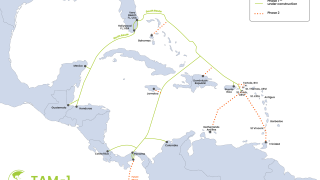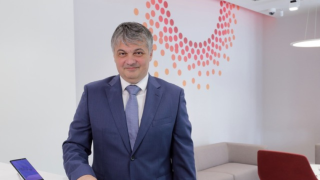Jean-Claude Juncker, president of the Commission, set out that and other goals for the telecoms industry in his state of the EU speech to the European Parliament in Strasbourg this morning.
“We need to be connected. Our economy needs it. People need it. And we have to invest in that connectivity now,” said Juncker, who has been president of the Commission since 2014.
By 2025 all urban areas as well as major roads and railways should have uninterrupted 5G coverage, he said. As an interim target, 5G should be commercially available in at least one major city in each EU member state by 2020.
In addition the Commission wants all European households, rural or urban, to have access to connectivity offering a download speed of at least 100Mbps, which can be upgraded to 1Gbps.
The Commission has proposed a new European Electronic Communications Code with rules designed to make it more attractive for all companies to invest in new infrastructure everywhere in the EU, both locally and across national borders.
“We want to create a new legal framework that attracts and enables investments in connectivity,” he said. “Businesses should be able to plan their investments in Europe for the next 20 years. Because if we invest in new networks and services, that is at least 1.3 million new jobs over the next decade.”
He also put forward a “WiFi4EU” project, “to equip every European village and every city with free wireless internet access around the main centres of public life by 2020”.
The Commission explained in a background briefing that there will be a public voucher scheme with an initial budget of €120 million, to offer Wifi in and around public buildings, health centres, parks or squares.
“This new public voucher scheme has the potential to deliver connectivity to thousands of public spaces, generating 40 to 50 million Wifi connections per day,” said the Commission. “Financing for the installation of local wireless access points should be available quickly, after adoption of the scheme by the European Parliament and member states. A minimum of 6,000 to 8,000 local communities should benefit from this new project by 2020.”
Andrus Ansip, Commission vice-president for the digital single market, welcomed the move. “Without first-class communication networks, there will be no digital single market. We need connectivity that people can afford and use while on the move,” he said.
“To achieve that, spectrum policies must be better coordinated across the EU. More competition and further integration of the European market will allow us to reach these goals, helped by the right environment created by the new communications code.”
Günther Oettinger, the EU’s commissioner for the digital economy and society, said: “Europe has the ambition to lead on the deployment of 5G. It is time to move to a gigabit society and make sure all Europeans, whether in the countryside or in cities, can get access to a quality internet connection.”
Vodafone and the European Competitive Telecommunications Association (ECTA) were both quick off the mark in responding to Juncker’s speech.
Markus Reinisch, Vodafone’s public policy director, and Grégoire Verdeaux, its international policy director, said: “Vodafone welcomes the review of the EU telecoms framework resulting in today’s proposal for a new European electronic communications code and the Commission’s communication on its vision for the European gigabit society.
They added: “We welcome today’s proposal to foster the roll-out of ubiquitous, very high-capacity fibre and 5G broadband infrastructure that Europe needs for its global competitiveness.”
ECTA’s chairman, Gijs Phoelich, said: “We believe that co-investment can also be a means to ensure efficient investment in non-replicable parts of the networks.”





